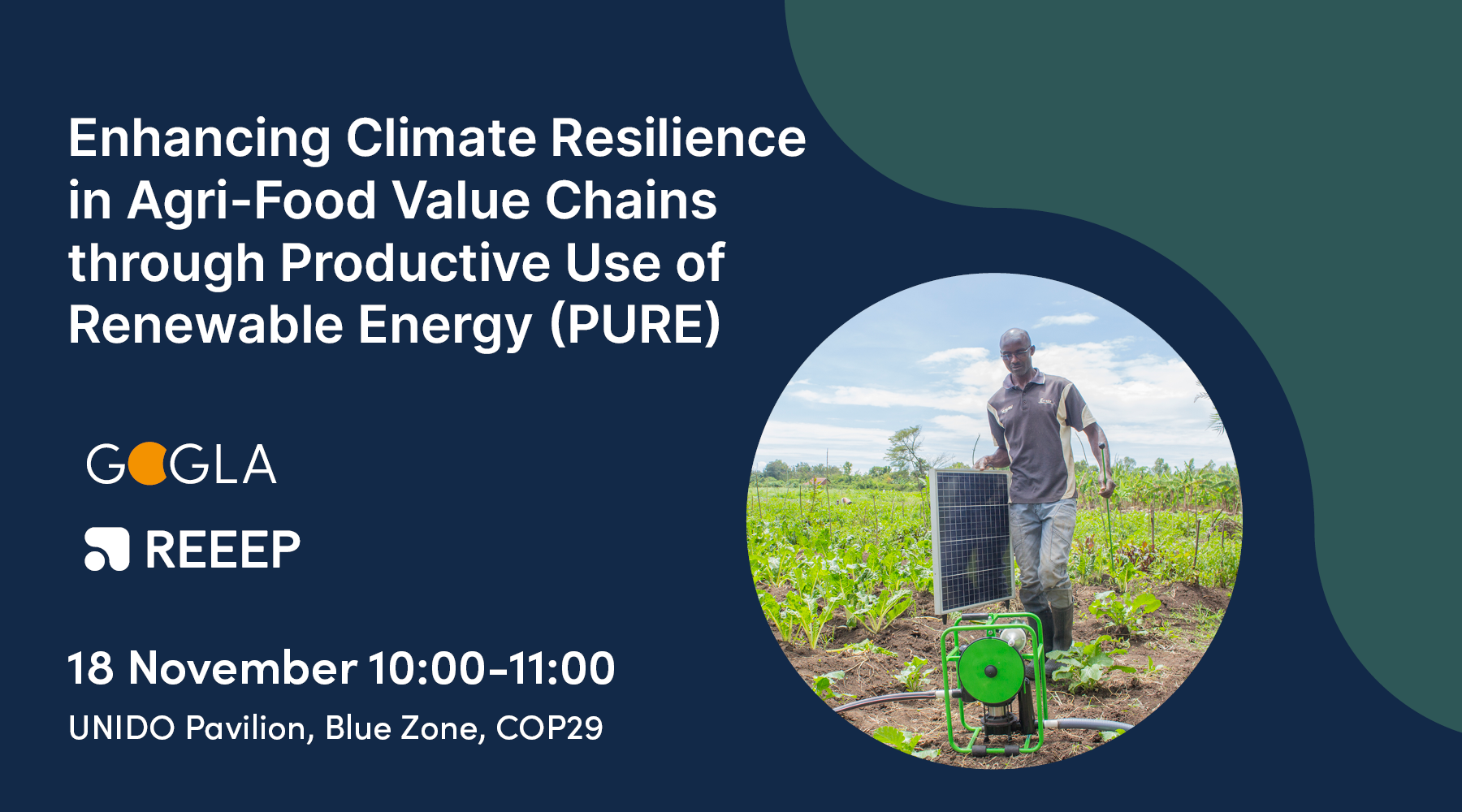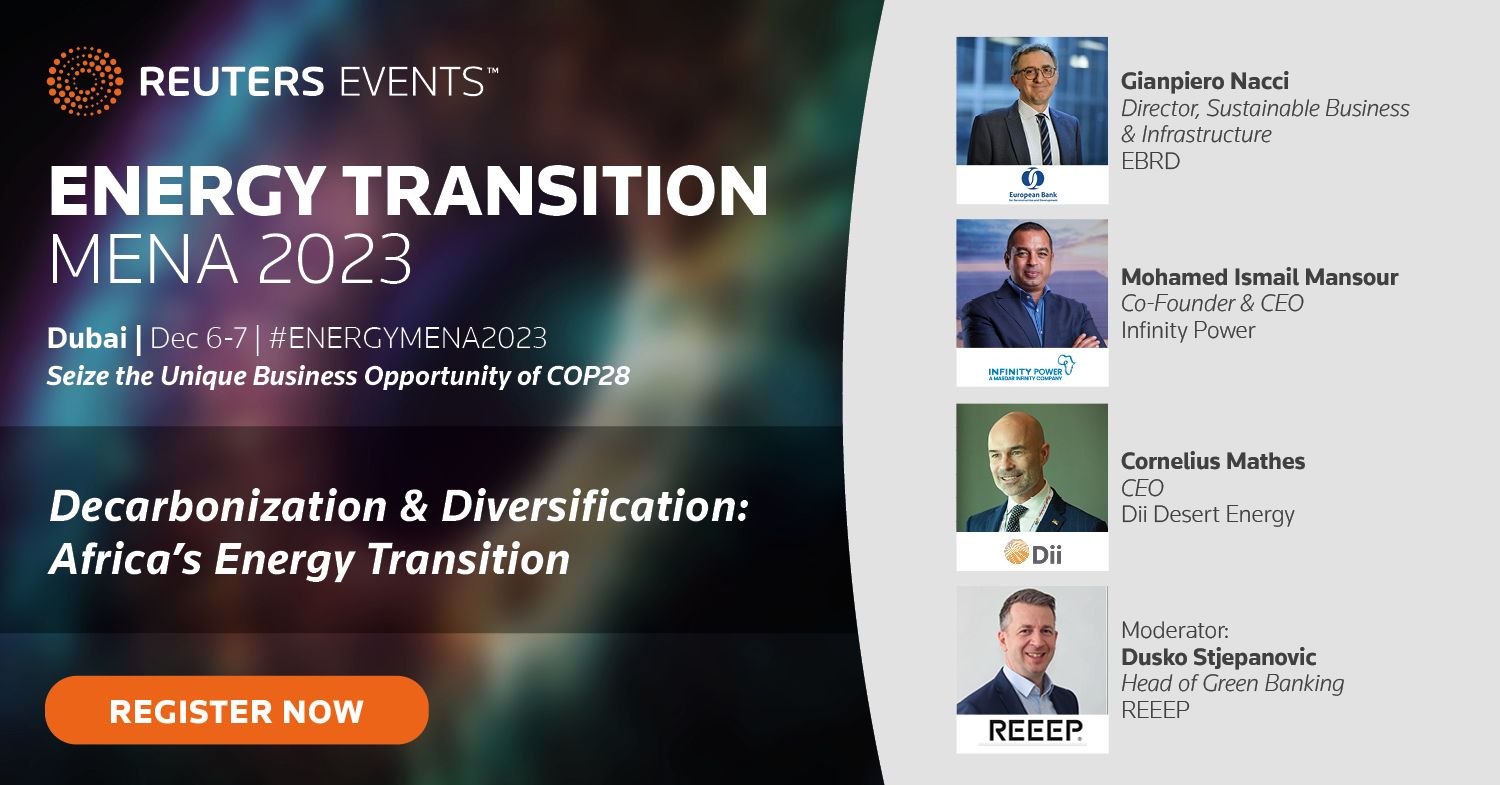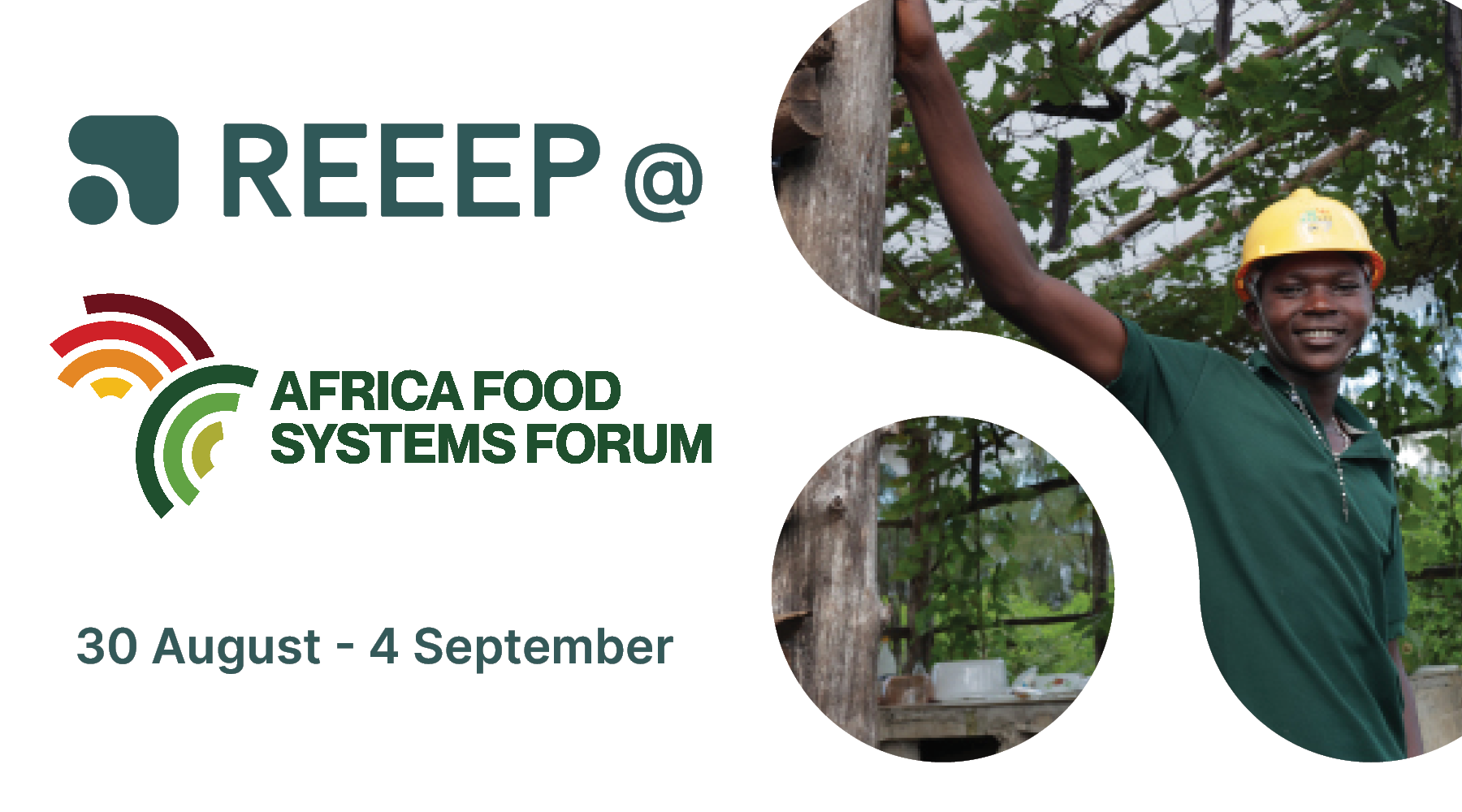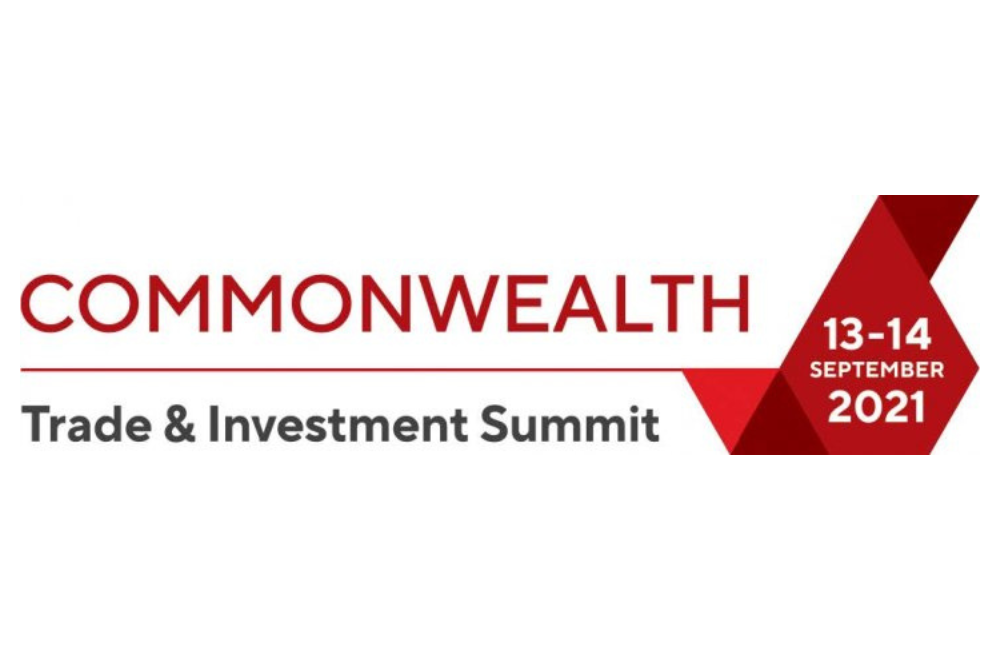With the increasing impacts of climate change, there is a critical need to enhance resilience across agri-food value chains, especially in vulnerable regions that rely on agriculture for livelihoods and food security. REEEP and GOGLA are hosting a session aligning with COP29’s emphasis on climate adaptation and resilience, focusing on how distributed renewable energy can serve as a catalyst for sustainable, climate-smart agriculture. It seeks to demonstrate how productive use of renewable energy (PURE) solutions can maximize productivity, reduce food waste and emissions and foster resilience in agriculture against climate shocks, crucial for global food security and achieving NDC goals.
Agriculture is among the most climate-sensitive sectors, leaving rural communities especially vulnerable to climate shocks. Solar off-grid electricity and productive use technologies are essential for modernizing agriculture, fostering green growth, and enhancing food security in rural off-grid areas. By integrating distributed renewable energy solutions, the sector can reduce its dependence on fossil fuels, cut operational costs and increase productivity sustainably, enabling irrigation, processing and preservation.
Solar irrigation systems are reducing reliance on rain-fed agricultural production and can provide a sustainable way to increase food production. For example, research by 60 Decibels on solar water pump users in Kenya, Rwanda, Senegal, Tanzania, Uganda and Zambia found that 65% reported a significant increase in productivity, while an additional 31% noted a moderate increase. Refrigeration units, walk-in cold rooms, and other cold storage facilities support food preservation. In India, EcoZen has developed over 850 cold storage units, benefiting more than 70,000 farmers, and has enhanced these solutions with its EcoConnect platform, which connects farmers directly to markets. Solar-powered agro-processing solutions like solar mills and solar dryers can also enhance food security, reduce post-harvest losses and create employment.
When these PURE solutions are complemented with increased knowledge of improved agricultural practices, market linkages, and the right policy environment, they can improve economic opportunities for the most climate vulnerable population. This transition to renewables in agri-food value chains not only mitigates climate impact but also enhances community resilience, directly supporting the broader climate adaptation agenda.
Session Objectives:
- Explore how PURE technologies and solutions contribute to a resilient, low-emission and high-value agri-food sector
- Discuss ongoing interventions to tackle barriers to adoption and access for different actors
- Showcase practical end-user centric examples from agriculture and energy experiences
- Emphasise the need for innovative financial and delivery models for farmers







